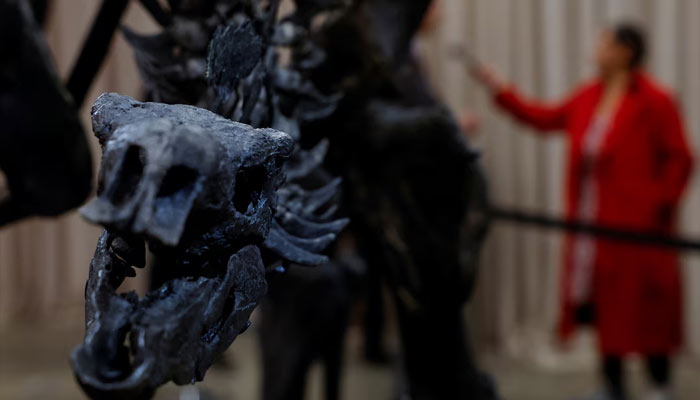
The American Museum of Natural History revealed the identity of its latest resident on Thursday — “Apex,” one of the most complete specimens ever discovered of the plant-eating dinosaur Stegosaurus, known for the upright plates on its back and a spiky tail.
To excited gasps from an audience of school children, the museum pulled back a beige curtain to reveal the 11-foot (3.4-meter) tall, 20-foot (6-meter) long skeleton of the Jurassic Period dinosaur.
“People are really excited about this fossil because Stegosaurus is an iconic dinosaur,” said the museum’s dinosaur curator Roger Benson.
Stegosaurus walked on four legs and lived in North America around 150 million years ago during the Jurassic Period. Its fossils were first discovered in the 1870s.

“Although it was a herbivore, Stegosaurus wasn’t like a cow or a sheep,” Benson said. “It’s a herbivore that could look after itself. It has these wicked spikes on its tail. It has plates along its back.”
Those would have been useful as protection against meat-eating dinosaurs like Allosaurus.
This Stegosaurus fossil was found in Colorado and fetched a record $44.6 million at a Sotheby’s auction in July. The buyer has loaned it to the New York museum, one of the leading natural history museums in the United States.
“Everyone has their own favorite dinosaur, but Stegosaurus is up there in the top five. So it’s hard not to get excited about a really complete, large individual of this animal,” Benson said.





